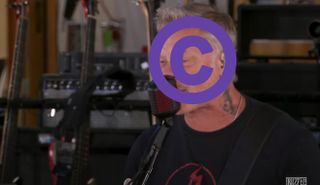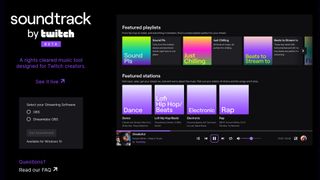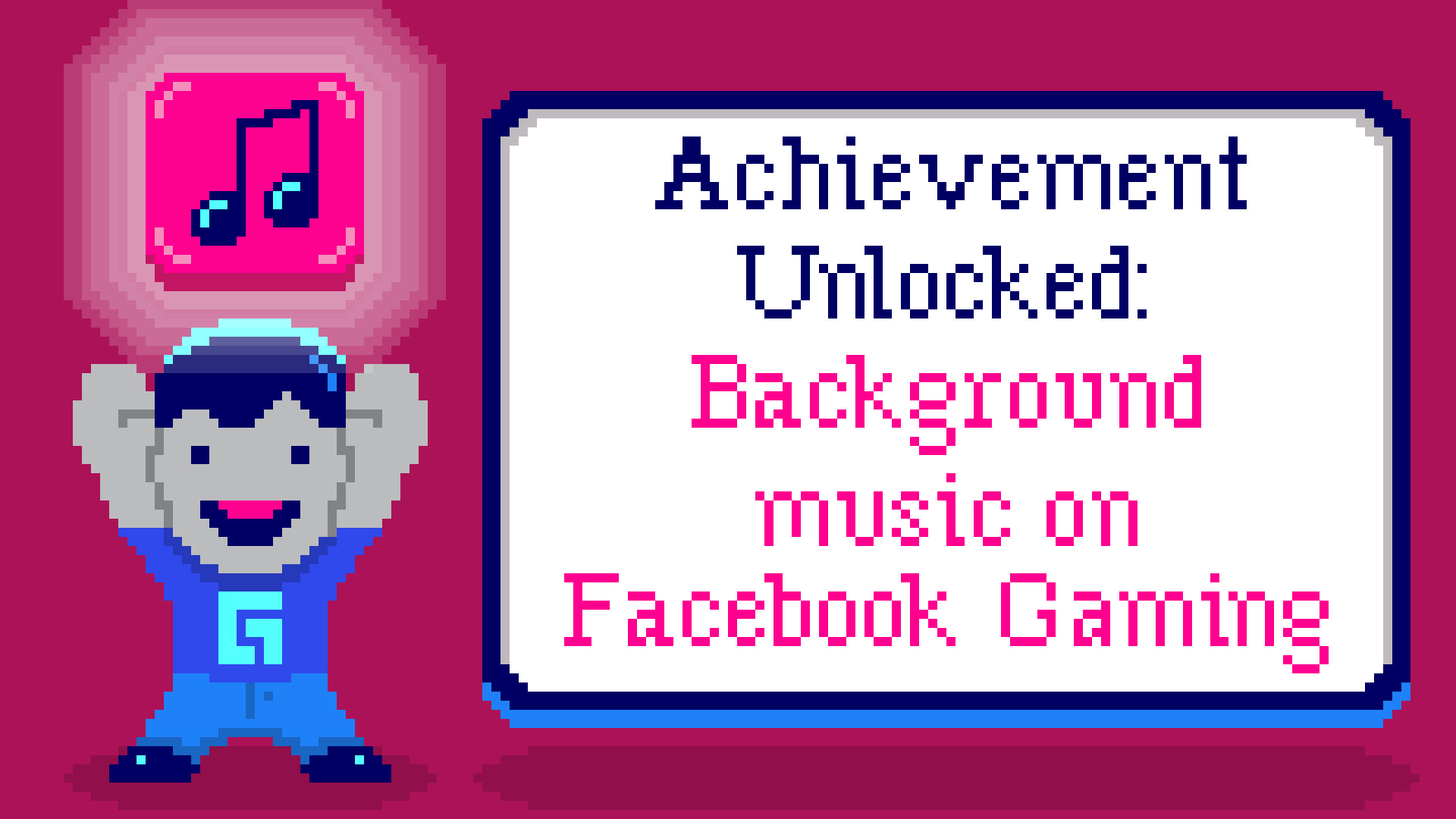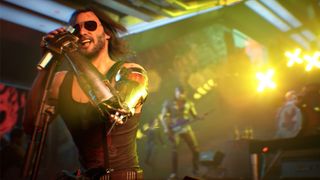How does Twitch escape its new DMCA hell?
We talked to a lawyer about Twitch's options for appeasing the music industry and anxious streamers.

Metallica never scored a Legend of Zelda game, but it sounded like it, for a minute, when Twitch replaced a recent Metallica live performance with some royalty free midi music during BlizzCon. The goofy, plinky-plonk score that replaced Metallica on February 20th perfectly encapsulated what an awkward spot Twitch is in right now with music copyright: the biggest streaming platform in the world had to censor its own broadcast or risk upsetting an already aggravated music industry.
Last year, the music industry attacked Twitch in a letter claiming it did "nothing in response to the thousands of notices of music infringement" that it had received over the years. That wasn't exactly true—Twitch replied that it does pass along what it considers "valid" DMCA takedown requests for copyrighted material—but the music industry clearly wasn't satisfied.
"Twitch continues to turn a blind eye to the same users repeatedly violating the law while pocketing the proceeds of massive unlicensed uses of recorded music," said the chairman of the RIAA. "And Twitch’s claim that it responds to takedown requests it considers ‘valid’ fails to show good faith with music creators."
So Twitch reacted—dramatically. In October, Twitch forced streamers to delete thousands of old clips that contained licensed music in just a few days, with no good tools at their disposal to determine which files were actually problematic.
The moment of crisis has passed, but Twitch still has to deal with a whole mess of problems:
- Playing music from Spotify being habit for streamers after years with no issues
- The music industry is upset with copyrighted music in livestreams and VODs, but Twitch's existing solutions are all for the latter
- The music industry insists Twitch needs to pay for synchronization and mechanical music licenses for its Soundtrack tool
- Giving streamers the tools to handle DMCA takedowns without nuking their whole archives
So how can Twitch resolve its current stand-off with the music industry? Is that Metallica concert just a preview of what enforcement will look like in a few years, with automated tools detecting and silencing copyrighted material live, in real time?
"[That's what] I would expect," says Kellen Voyer, a lawyer who specializes in IP and technology law. "YouTube was an early infringer and is now getting competent (still has room for improvement) in assisting rights holders in protecting copyright and I expect we’ll see an improvement on the streaming side in the next few years. With all new technology there’s a period of freedom, then a teething period, then some form of equilibrium between the technology and rights holders. Then another technology emerges and it starts all over again."
The biggest gaming news, reviews and hardware deals
Keep up to date with the most important stories and the best deals, as picked by the PC Gamer team.
Twitch today is firmly into its teething period. In November, Twitch wrote to streamers owning up to the mess of DMCA takedowns that flooded the platform last year, saying that "things can—and should—be better for creators" and laying out plans for future tools that will make it easier for streamers to manage copyright on their channels.
What it hasn't said much about is what Twitch, as a platform, could potentially do to prevent those DMCA takedowns altogether. There's one really obvious solution here for Twitch to placate the music industry: Pay up.

Solution: More money, fewer problems
Twitch already pays the music industry licensing fees for live performances, so if you want to perform your own cover of a Metallica song, you're in the clear. But when it comes to playing prerecorded music, which is far more common, streamers are entering a DMCA minefield. Last year Twitch launched a tool called Soundtrack with a selection of licensed music, automatically played over a separate audio channel so it's easy to play them live, but keep them out of VODs. That's because the rights for live music and recorded music are different. It seems like an ideal solution—but the music industry says it doesn't go far enough.
I expect the RIAA and other groups are holding out for a deal being struck with Twitch
Kellen Voyer
The industry's October letter insisted that for Soundtrack, Twitch needs to pay for synch rights, which get complicated and confusing in a hurry. The gist is that synch rights apply to the pairing of music with imagery. Twitch claims Soundtrack is "fully licensed," but its argument is based on an interpretation of the law that would mean synch doesn't apply to streams.
"If the live stream is truly 'live' (i.e., in real time and not recorded), many rights users take the position that the musical composition does not need to be cleared, as it is not 'fixed' with the visual images and therefore does not implicate a copyright owner’s exclusive rights," explains the Reed Smith guide to livestreaming.
That's exactly Twitch's position. The music industry, unsurprisingly, doesn't see it that way. "We are confounded by Twitch’s apparent stance that neither synch nor mechanical licenses are necessary for its Soundtrack tool," a letter from the RIAA and other music industry bodies stated back in October. (A mechanical license covers the right to reproduce and distribute a musical composition).
So if the music industry thinks Twitch is skipping out on necessary licenses, why the admonishing letter and not a lawsuit?
"I expect the RIAA and other groups are holding out for a deal being struck with Twitch," says Voyer. "They’ve had a long history of protracted, public battles over new technologies that have never ended exactly as they want and often been bad for PR. The music piracy lawsuits against individuals (and also Napster) were certainly bad for PR and I wonder if they’re focused on the easier, larger target of Twitch/Amazon with this in mind. Further, there’s a lucrative relationship that could result should the parties ink a deal so continuing to push outside of court is a way to pursue this option."

A more robust licensing arrangement isn't an outlandish idea. In September, Facebook Gaming signed a deal with major record companies to allow for licensed music in both livestreams and VODs. There are still limits to what songs can be played, of course, but it's a "throw money at the problem" solution that takes some of the risk away from creators. It's also a smart move for the less popular streaming platform that could lure in a few particularly frustrated streamers.
Twitch's owner Amazon could certainly afford to pay millions of dollars more to the music industry if it chose to, and it seems like a no-brainer to tie together Twitch and Amazon Music Unlimited in some way. Twitch Soundtrack included about 1 million songs at launch, but that's a fraction of the 70 million or so on Spotify. Twitch doesn't have deals with any of the major music companies that Facebook does, like Warner, Universal, and Sony. If big-name partnerships and a sweetened licensing deal aren't in Twitch's future, it seems likely some kind of automated copyright system for livestreams, and not just VODs, will be.
Solution: Automate it
In the early days of YouTube, it was anything goes and copyright be damned. That didn't last long, and in 2007 Google introduced Content ID, designed to scan videos and compare them against a database of copyrighted material. The automation means copyright holders don't have to rely exclusively on DMCA takedowns, though of course it comes with plenty of problems for YouTubers, too. It's a sledgehammer, not a scalpel.
Today, Content ID can even monitor livestreams and shut them down when they contain copyrighted content, which is where YouTube differs from Twitch most dramatically. Twitch uses a service called Audible Magic to detect copyrighted material and mute it in VODs and clips (though stuff inevitably slips through, which is why streamers still get frequent DMCA takedown notices). Audible Magic does not work in real time, however.
On YouTube, when ContentID flags something as copyrighted in a livestream, the resulting bans can feel punitive to streamers—especially if the algorithm is wrong, which happens often. Content ID is especially skilled at flagging music, and the Electronic Frontier Foundation argues that the system dampens creativity on YouTube, bulldozing situations that should be considered fair use.
"A whole genre of art is covered far less than others simply because Content ID makes more music matches than audiovisual ones," said the EFF in a 2020 article. "While fair use would protect music reviews as transformative, Content ID makes doing them on YouTube nigh impossible. Content ID only determines whether a few seconds of a video matches a few seconds of something in its database. So while fair use has no bright-line rule about how much a creator can or cannot use, Content ID does. And it’s just a few seconds."

If Twitch is planning new licensing deals or a content matching system that works live, it's not talking about those plans publicly
Fair use isn't the major issue on Twitch, where streamers often play music in the background rather than for purposes of criticism or education. But it could still be relevant to the music within games. Cyberpunk 2077 launched with a streamer mode that was supposed to disable copyrighted music, making it safe for Twitch. But some moments in the game triggered DMCA strikes, anyway.
In court, streamers could argue that their commentary over a game and its music is a transformative work, protected by fair use. Most game publishers don't mind letting streamers talk over their games, even when they don't add explicit permission to a game's EULA. But licensed music in those games is another story. The music industry wants its royalties. Even if a streamer could win a fair use fight in court over a pop song in Cyberpunk, they'd still have to deal with the DMCA takedown first to comply with Twitch's rules.
Voyer thinks it's possible Twitch ends up with a system something like YouTube's Content ID, which already works with live broadcasts. Right now, Twitch is focusing on tools for streamers, like the ability to more easily delete batches of VODs and better DMCA notifications. Further off, it's planning changes to its Clips database and dashboard to make it easier to pinpoint clips that receive copyright strikes.
If Twitch is planning new licensing deals or a content matching system that works live, it's not talking about those plans publicly. A Twitch representative did not respond to questions for this article.
"I expect most streamers want to use music without having to worry about licenses, that’s their best internet experience," says Voyer. "Conversely, the artists want exposure but also compensation for the use of their works, that’s their best internet experience."
A solution like Content ID for live streams would probably mollify the music industry—and specifically address its claim that "Twitch continues to turn a blind eye to the same users repeatedly violating the law"—but would also likely come with the same baggage the Electronic Frontier Foundation laid out. If Voyer's right, copyright issues will continue to build on Twitch until something breaks: "You can’t appease both sides 100 percent, but I feel that a new normal will appear after this current period of tension (which I expect will only increase before it gets better)."

Wes has been covering games and hardware for more than 10 years, first at tech sites like The Wirecutter and Tested before joining the PC Gamer team in 2014. Wes plays a little bit of everything, but he'll always jump at the chance to cover emulation and Japanese games.
When he's not obsessively optimizing and re-optimizing a tangle of conveyor belts in Satisfactory (it's really becoming a problem), he's probably playing a 20-year-old Final Fantasy or some opaque ASCII roguelike. With a focus on writing and editing features, he seeks out personal stories and in-depth histories from the corners of PC gaming and its niche communities. 50% pizza by volume (deep dish, to be specific).
Most Popular

